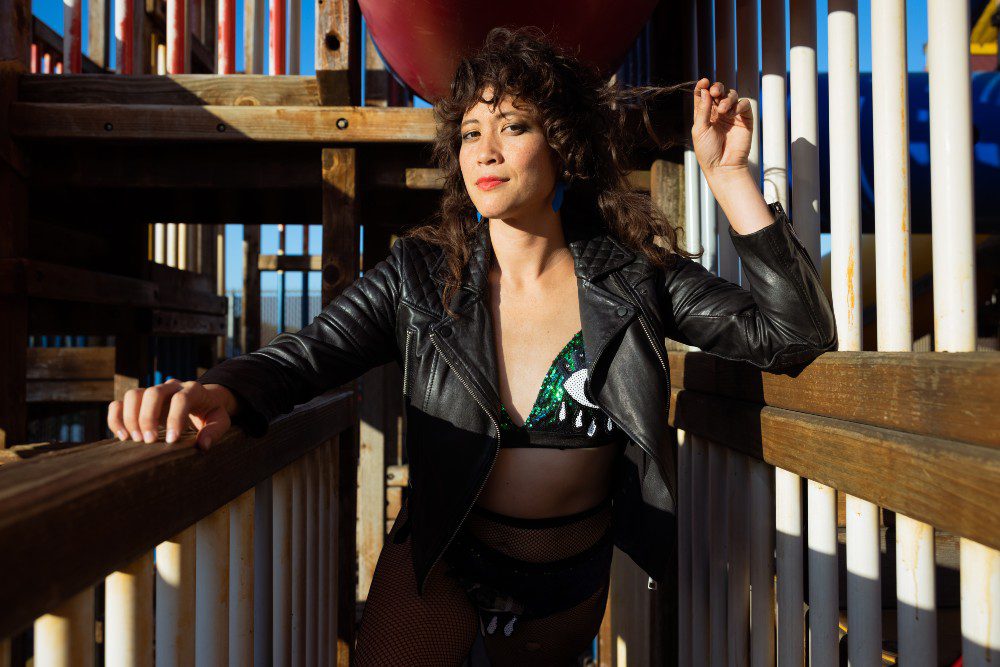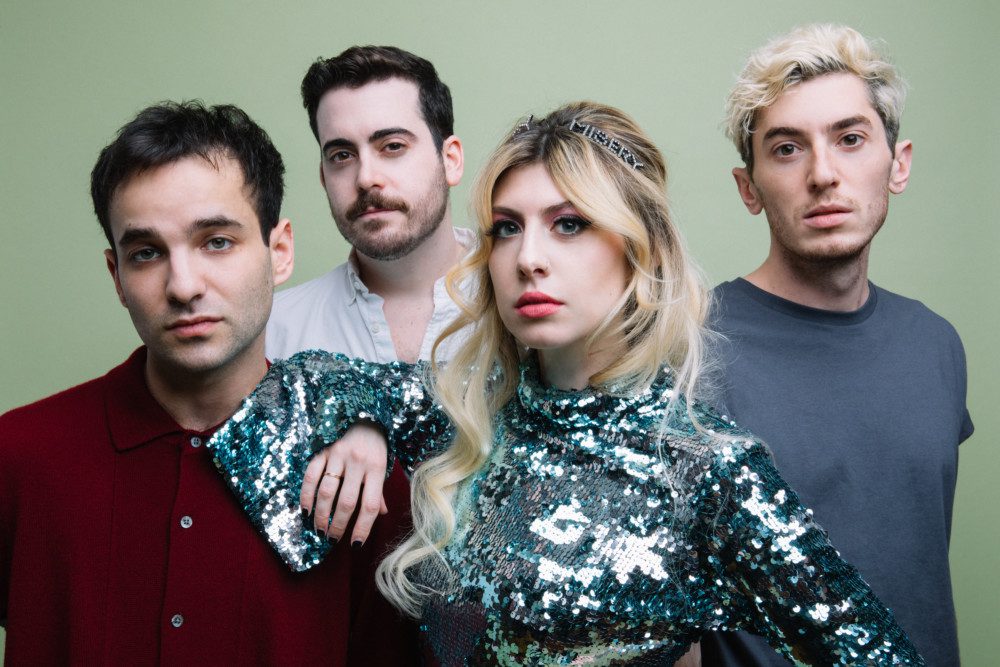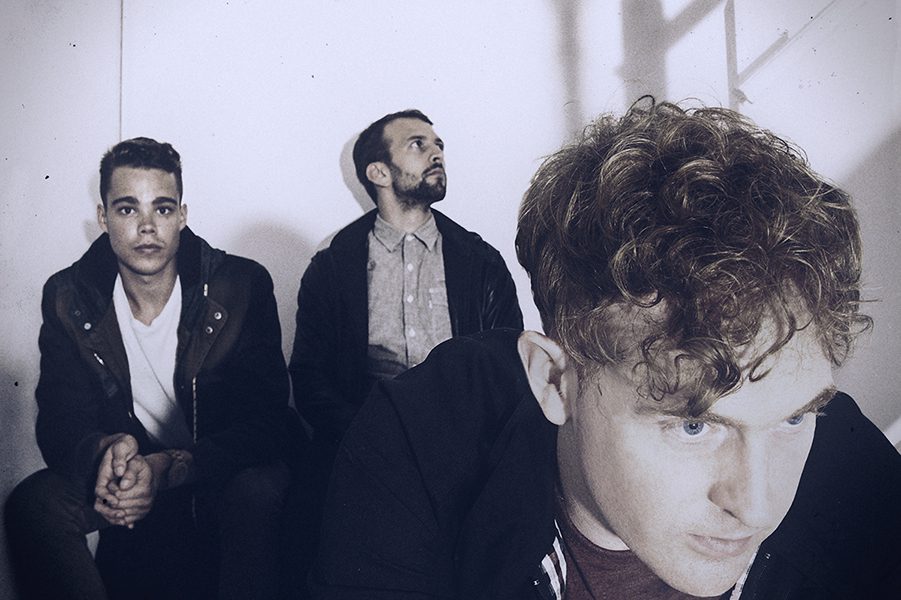Michelle Rose Makes Her Own Dreams Come True “One Promise At a Time”
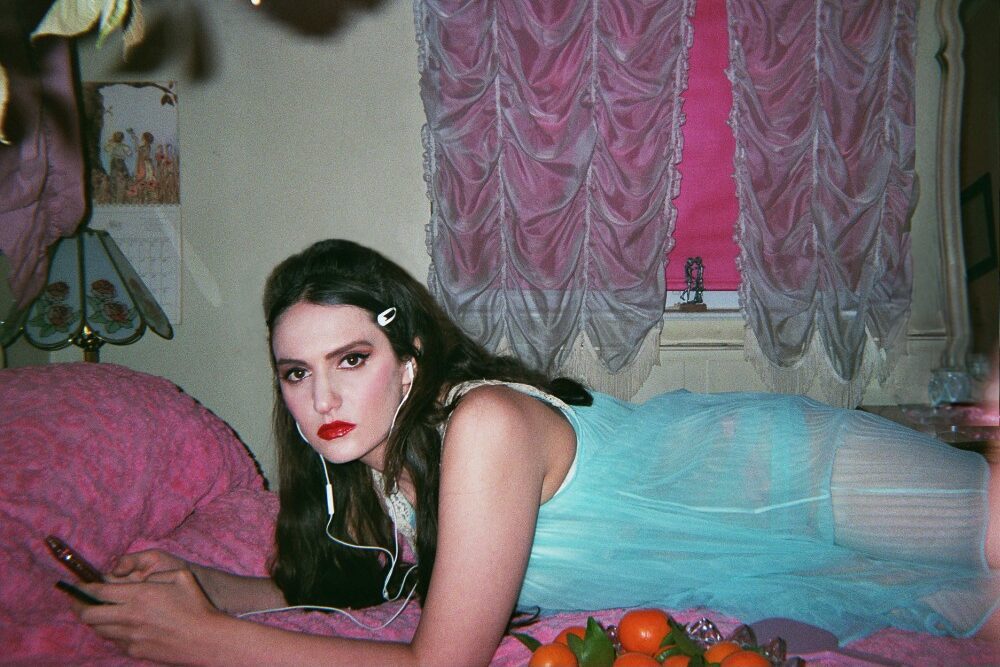
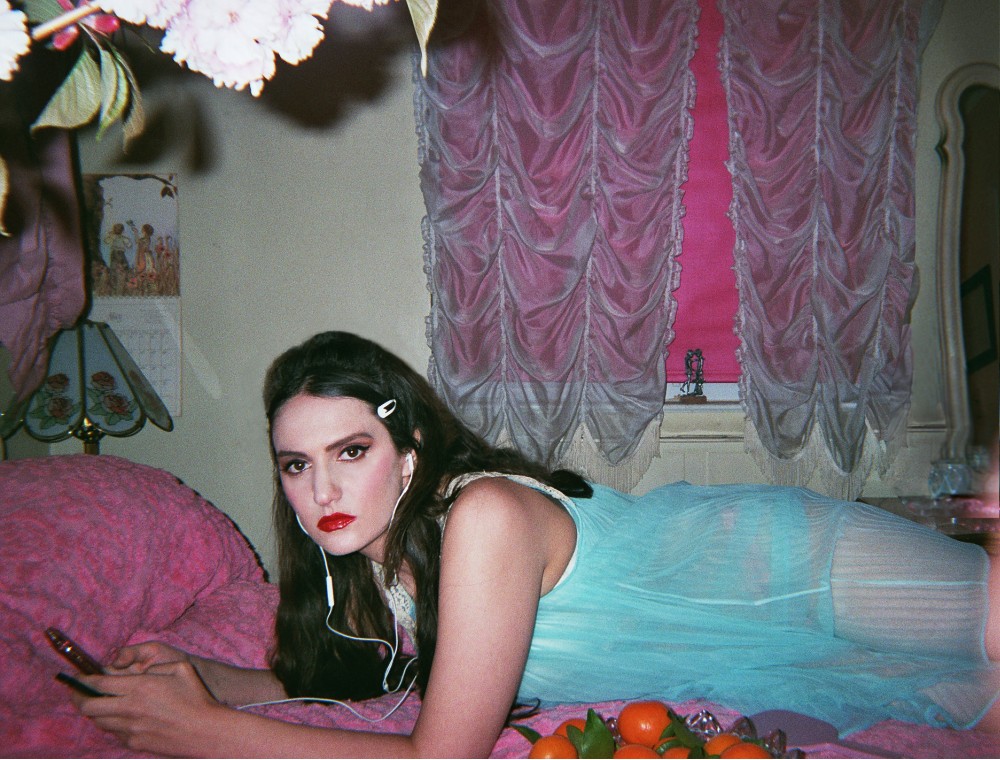
The same earworm plays in nearly every episode of the final two seasons of Comedy Central’s Broad City; it’s in the bodega, it’s on the radio, someone’s performing it at karaoke. Fans of the show are probably already humming (or belting) its singular refrain: “I am LEAAAAAANNNE!” Though Ilana Glazer and Abbi Jacobson created the show’s most memorable Easter egg as a spoof on Lady Gaga’s Joanne persona, there’s a talented industry vet at the helm of the studio version – and our readers are likely already familiar with her.
Longtime Audiofemme contributor Michelle Rose, in fact, is the Leanne – and she didn’t just stop at tracking vocals for Broad City. She turned “Leanne” into a full-blown performance piece, evidenced by a karaoke-style video shot at Baby’s All Right just after the show’s fifth season wrapped. The opportunity came about because Rose was naturally doing what she does best – striking up a conversation with a random stranger at the right time. “I’m a sticky person who constantly just wants to enter new spaces and meet new people,” she explains. In this case, that person was the show’s music supervisor, MattFX, who brought in Ary Warnaar of ANAMANAGUCHI to helm production; the rest is history.
Rose’s professional history is long and storied: she’s a classically trained cellist and played alongside her sister Sarah Frances in Frances Rose off and on since 2011; she interned at PAPER and worked in experimental theatre; had a songwriting deal with Warner/Chappell; and most recently curated events as the Program Manager at Soho House, where she helmed their Future Female Sounds series. But when the pandemic hit, there was no more networking, no more booking, no more events. Reeling from the loss of her livelihood, in the throes of a toxic relationship mired in tension and distrust, and still grieving her father who’d succumbed to cancer in 2018, Rose set out to fulfill his dying wish.
“One of the last things he wrote down for me after he lost his ability to speak was to use my skills,” Rose says. Coming from a master of the flat-top guitar, music teacher, and mentor who played with Pete Seeger and Les Paul among others, she felt the weight of her dad’s last request heavy on her shoulders. But it would be years before she put pen to paper to write “one promise at a time,” premiering today via Audiofemme.
Written at the start of the pandemic, “one promise” channels the pop-punk energy Rose gravitated toward as an angsty teen coming of age in Hudson Valley, while its DIY production recalls the scrappy grit of Kathleen Hanna’s post-riot grrl electro project Le Tigre. She finally vents long-simmering frustrations built up over years of pushing her own ambitions aside to make other people’s dreams come true. “I love doing that, but I had to find a balance being an artist,” she says. “The song became an anthem for myself that I was ready to call out all of these false promises and expectations that were orbiting my life at the time. I was ready for not only a pivot, but a catalyst of growth.”
That growth is richly documented on Rose’s forthcoming EP, arriving early 2022 (in the meantime, she plans to release a new single every five weeks or so). The EP underscores the importance she felt in showing up as authentic and autonomous, to tell her story transparently, and to put the music first. Appropriately, the EP is called it’s about time, expressing Rose’s playful impatience, as well as holding space for all the weeks, months, and years that slipped by while life got in the way.
“A lot of these songs are about the literal passing of time and personal growth, and over time, coming to these realizations,” she explains. Minimal break-up jam “i don’t see you in my dreams,” for instance, was written before Rose’s doomed relationship officially ended; subconsciously, she knew it was already over. “These songs are a piece of self knowledge,” she says.
They’re also a roadmap to Rose’s eclectic musical tastes. There’s dance punk circa New York City’s electro indie golden era, when Rose first arrived in the city after studying at Bennington College. There are vocal nods to Madonna and Britney Spears and sonic odes to hyperpop and disco. “I just felt like the world really wanted pop music that was coming from a simplistic place, like direct songs from a place of empowerment that didn’t need to be theatrical and larger than life,” Rose says, her music biz savvy showing. “People want brooding, vulnerable, disco songs in simple registers that we can sing along to, these kind of pop punk-adjacent, female-fronted anthems.”
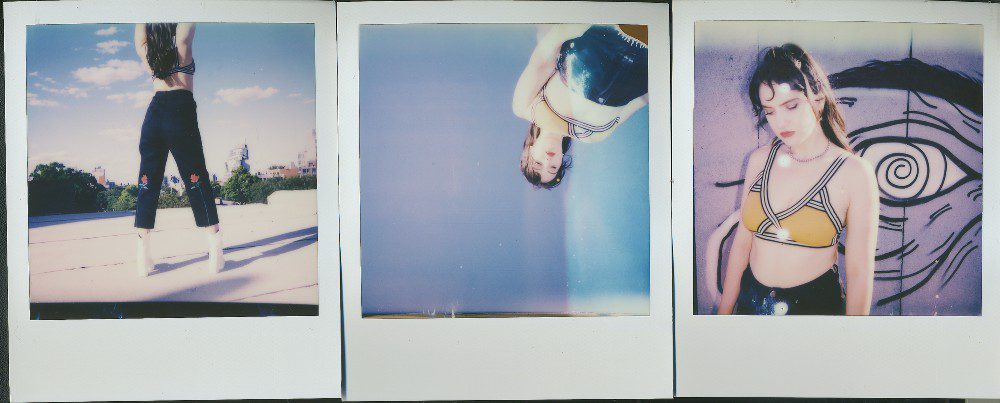
Rose is lyrically vulnerable on each track, but they also embody the lightness of the songs she loved in her youth. “I really love that bright, shimmery, escapist pop,” she enthuses. Surprisingly, most of her demos start out as “sad country songs,” but Rose never felt that was true to what she wanted her sound to be. “I really wanted to make something upbeat and fun and electronic. I have the language and vocabulary for electronic music but I know that I’m not the fastest engineer and can’t really capture my ideas in real time as they come.” She’d often thought to herself, “Why can’t I just meet some indie kid who makes electronic pop music in Brooklyn and like, make a record?” And then, she did.
After dipping her toes into performing solo again (or making a splash, depending on who you ask), a mutual friend introduced her to Godmode alum Tyler McCauley. It had been years since someone had offered to connect Rose with a producer (“Everyone thinks that I know everyone and that I’m just the queen of networking but I had no one to work with!” she says, lamenting the “elaborate coffee meetings” with so-called producers who wanted steep fees for unheard beats).
“I said to him: I don’t really have any kind of budget and no label. I’m looking to do something really collaborative,” Rose remembers. She and McCauley instantly found common ground, surprised they hadn’t met sooner via the one of the many serendipitous links between them. But most importantly, says Rose, “our skillsets worked well together – I was more experienced with pop toplining, writing quick hooks, and song structure, and my ear is really strong. He was a super fast engineer, really good with electronic sounds and synthesizers and disco and dance music.”
“But also, just the fact that he wanted to work together was so meaningful for me,” she adds. “We genuinely had fun together – it was something we looked forward to, an escape. It felt really cosmic and super cool and we just kept going.” “one promise” was the first song they finished together, and in the year since, they’ve completed more than a dozen.
As it’s about time began to take shape, Rose says she felt euphoric. “Any experience I had in the past that made me feel jaded or question if I should keep going totally washed away, because I was having so much fun making this music,” she recalls. “People can really get swept up in the idea of what something can become and then so much time passes you don’t get started. I was told that I’m too pop for indie but too indie for pop. Now that’s a whole genre and there’s space for that.”
And Michelle Rose is done waiting. “I want to re-enter the community with a more authentic sense of self than just being passive and longing,” she says. “I could go all these different directions, do whatever’s on my mind. But I want my passion within pop culture to have substance and to be rooted in something I’m creating. It took a lot to reawaken that, but now it feels nothing but honest to be moving into this next chapter.”
Follow Michelle Rose on Instagram and Facebook for ongoing updates.

